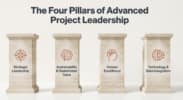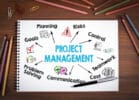As technology continues to reshape the world around us, learning has evolved from traditional classroom-based teaching to experiential learning. With the advent of AI, we now have access to a wealth of information at our fingertips. However, access to information alone is insufficient to prepare the next-generation workforce. To keep up with the pace of change, our learning must shift its focus from an information-based approach to experiential learning.
First and foremost, experiential learning puts the individual at the center of the learning process. Unlike traditional approaches focused on information dissemination, it is a hands-on approach that values knowledge gained through experience. This enables learners to develop real-world skills and apply them in practical settings.
It is important to emphasize social and collaborative learning. The presence of a community and collaboration leads to enhanced learning outcomes. Discussions, reflections, and feedback from peers and teachers provide a richer and more holistic understanding of the topic. The social learning element fuels a continuous loop of learning. As learners absorb, apply, discuss, reflect, and finally learn based on this richer understanding.
Experiential learning methods are adaptable and allow for a personalized learning experience. In traditional teaching methods, learners had to cope with a structured curriculum without any say in them. On the other hand, it enables learners to customize their course based on their interests and strengths. It makes the learning experience more engaging and enjoyable.
It is not just about acquiring knowledge but developing invaluable life skills such as leadership, teamwork, and communication. Experiential learning aims to develop individuals who can make meaningful contributions.
Crucial Differentiator
I believe experiential learning is a crucial differentiator in course delivery. It offers an effective method for quality education for learners to:
- acquire valuable life skills,
- develop a deeper understanding of the subject,
- engage in a more meaningful way with peers and teachers, and
- improve overall learning outcomes.
As the world continues to change at an unprecedented pace, teaching must make a shift towards experiential learning. We need to be prepared for success in our personal and professional lives.
Reach out to us for more information and sample our course materials.
Click here for more information on Leadership Programs.





